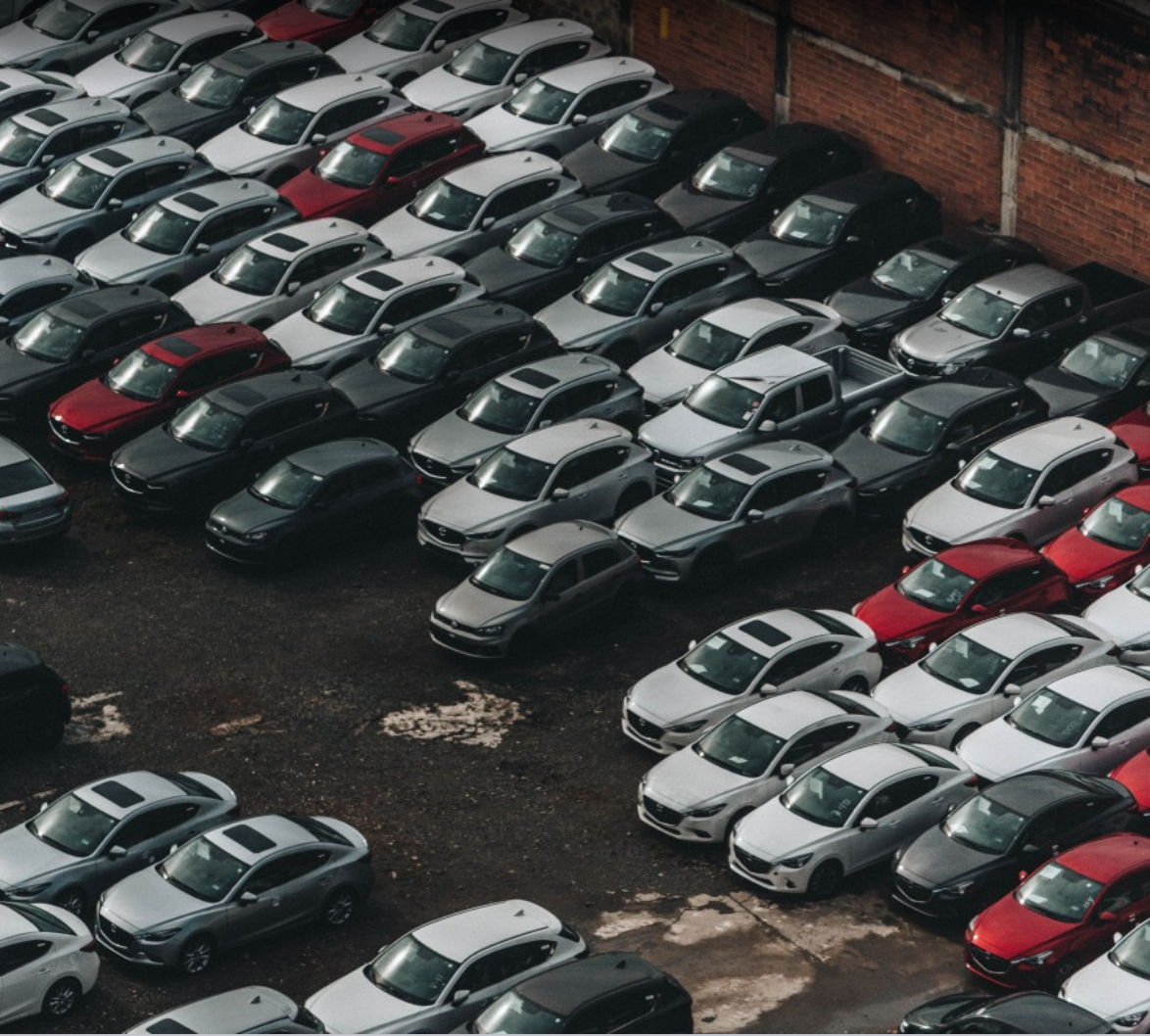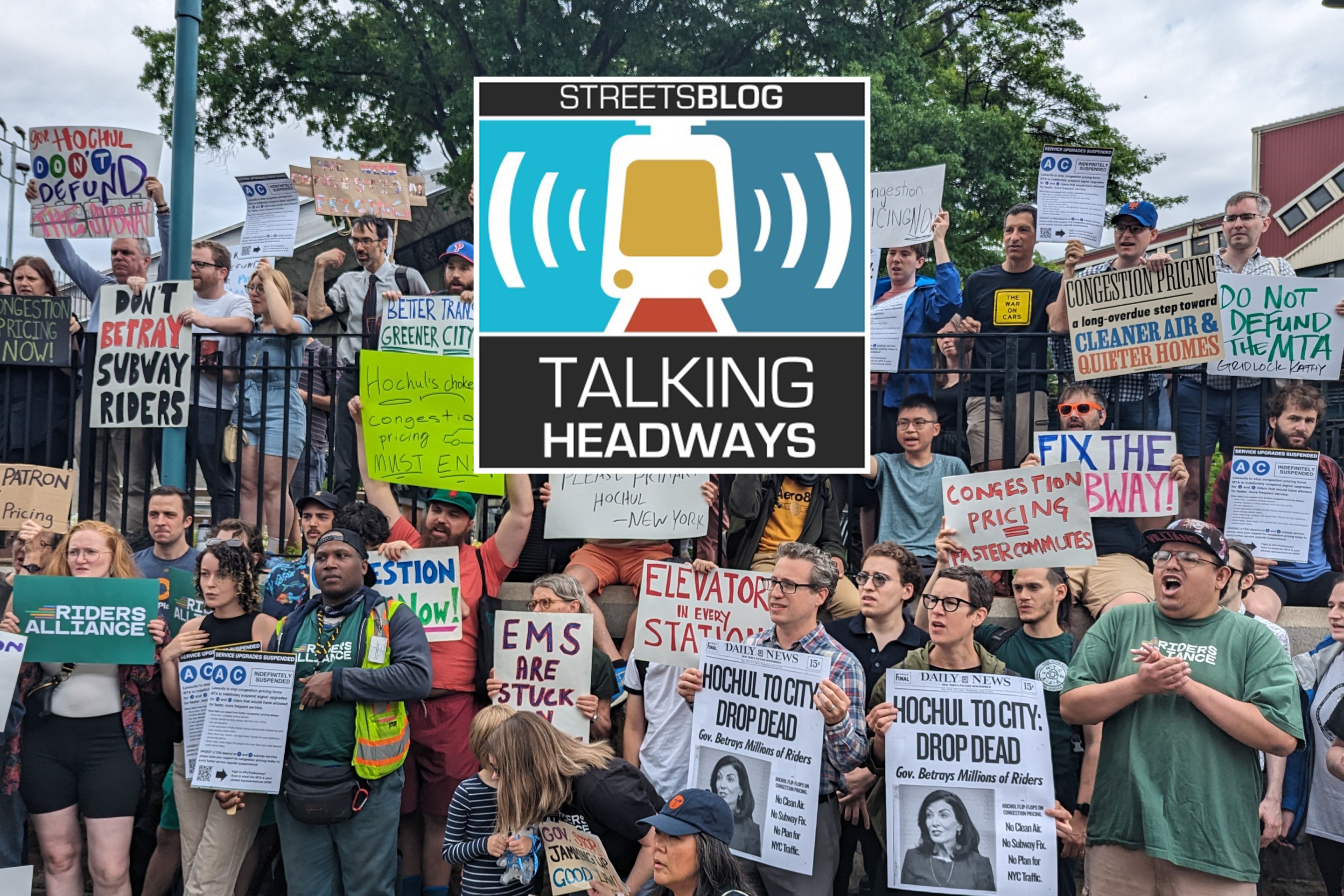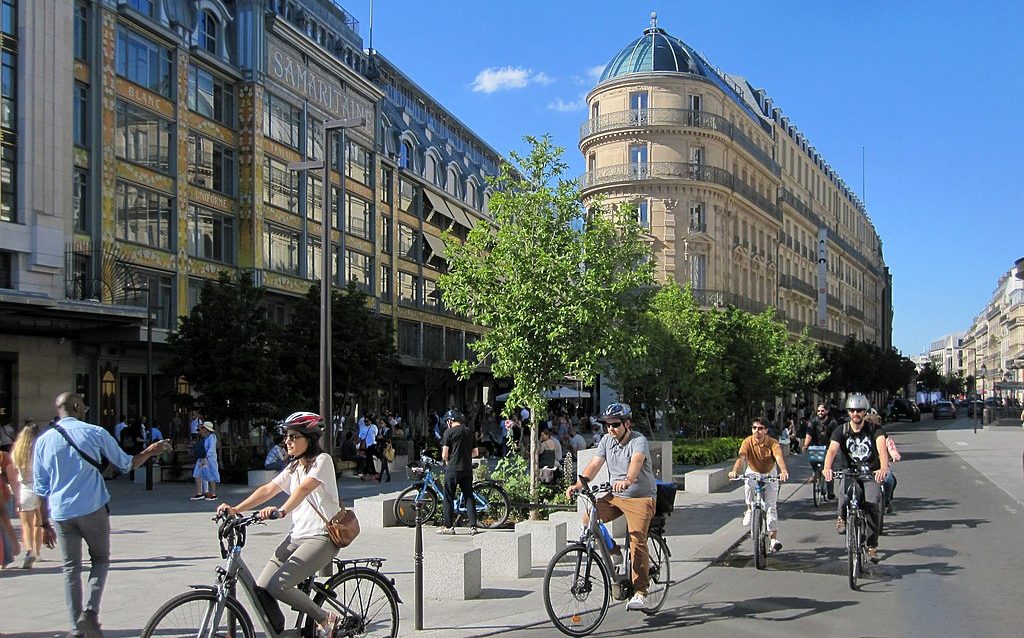
Imagine you could wave a magic wand and transform every perpetually empty parking spot in your neighborhood into something useful.
It's a fantasy that's haunted the imaginations of urbanists for decades as car storage has gobbled up more and more of our scarce urban land — and in the process, pushed the jobs, businesses and services on which we rely further and further from our homes, forcing Americans to increasingly rely on driving. In 2018, the United States had an estimated two billion parking spots, which collectively constitute a land area only slightly smaller than the state of Maryland. That's roughly seven spots for every car on the road today; in ultra car-dependent places like Jackson, Wyo., that ratio is closer to 27 to one.
And all that excess car storage isn't always a good investment — for commercial lot owners or the public good. Stories of $82,000-a-year parking spots in expensive cities like San Francisco are an extreme outlier in an industry that sometimes struggles to keep lots full outside of peak demand times like special events, or to sell pricey monthly passes to commuters who are happy to opt for underpriced public parking spaces instead. When COVID-19 cancelled the commutes of 20 percent of the U.S. workforce, the business got even tougher — so much so that even industry boosters expect profits to plateau or decline as soon as 2022.
And even as commercial lots shutter, cities are still hellbent on building more. Despite pressure from advocates, most cities require developers to adhere to strict mandatory parking minimums that increase our national supply of underutilized car storage every year.
Miami-based start up REEF Technology made headlines last month when it raised $700 million towards a bold promise to disrupt that status quo: by buying up parking lots and underutilized spaces across the country, and rapidly transforming them into a range of better (and more profitable) things. The deal promises to more than double the company's inventory of 1.3 million parking spaces and weave their vision for a parking-light city more deeply into the urban fabric of communities across North America and Europe; REEF says its holdings are already located in close proximity to more than 70 percent of Americans who live in urban areas, though few likely know it.
"Ultimately, we believe that cities are magic when you can work, live, play and grow within a short walk or bike of where you live," said Padden Murphy, head of communications and and public affairs for the company. "We look at things like parking lots and garages less like car storage, and more like embedded urban infrastructure that can offer us proximity to anything we need — and if you can put the right products and services in those spaces, you can truly make a city into a place for people, instead of cars."
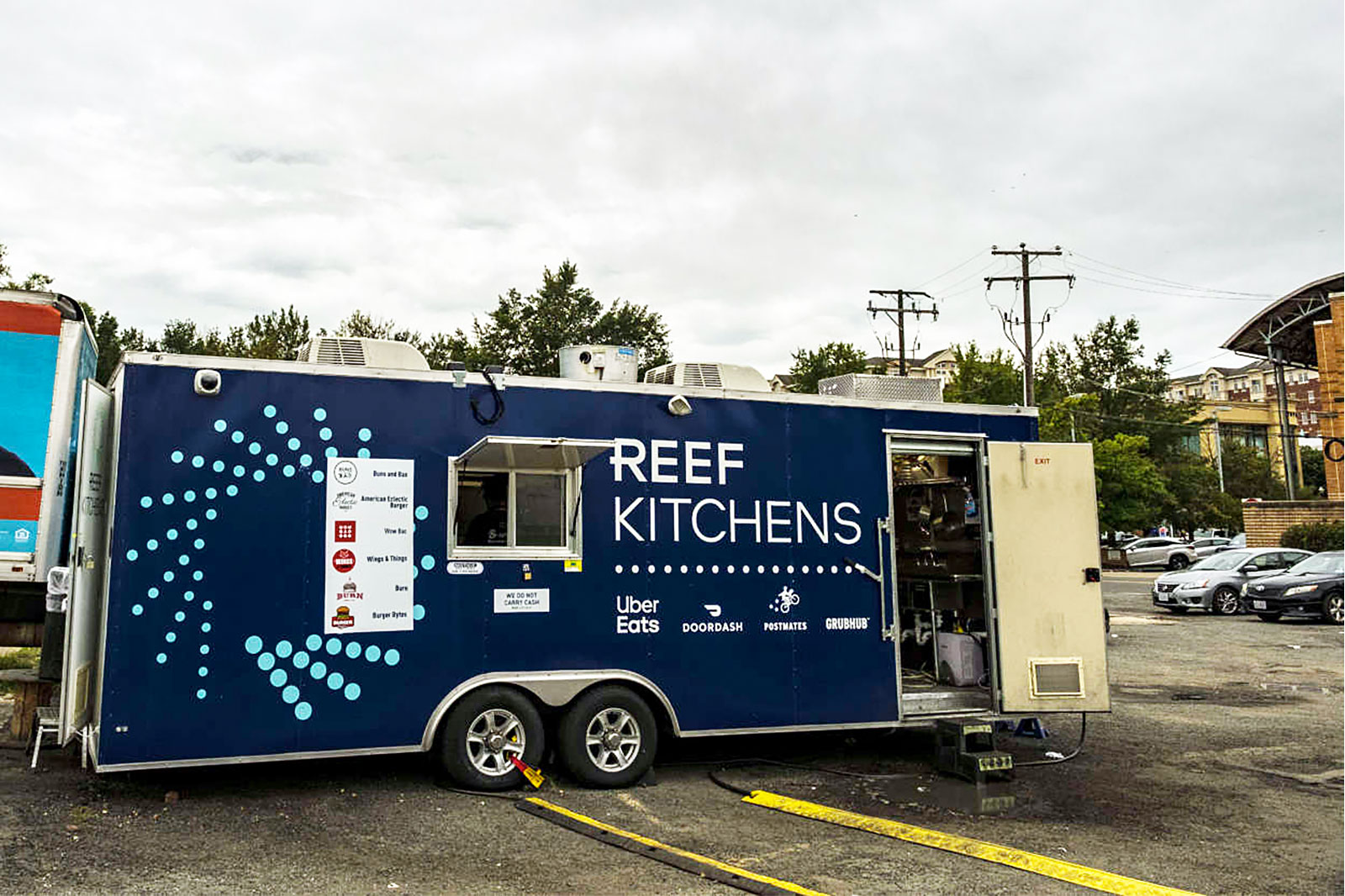
That may seem like a surprising turn for a company that began its corporate life as parking management service called Park Jockey. But Murphy insists that since the beginning, REEF CEO Ari Ojalvo has been building his real estate portfolio with an eye towards one day putting it to its highest and best use — which, more often than not, isn't private vehicle storage. ("Ari’s the CEO of the largest parking operator in America, and he doesn’t own a car," Murphy laughs.)
Today, the company markets itself as North America's "largest operator of mobility, logistics hubs, and neighborhood kitchens," as well as a potential partner to urban farms and neighborhood grocery — which sounds like a bizarre range of offerings, until you consider the role that repurposing underutilized asphalt can play in improving all those things. That's because, in addition to owning parking lots, warehouses, and other urban spaces that usually lie fallow, REEF also creates modular, rapidly-deployable structures than can quickly transform those voids into things that cities actually need, as well as a suite of logistics software to help companies make the best possible use of them.
During COVID-19, that "best" has usually meant things like socially distant neighborhood health clinics — the company launched 100 pop-up testing sites in underserved areas practically overnight — as well as shipping container "ghost kitchens" that allowed financially battered restaurants to cut costs by preparing their food in no-fuss facilities and serving it via delivery only. REEF "logistics hubs" have also served as a solution to the elusive last-mile problem that sends countless delivery trucks into U.S. neighborhoods every year; by providing a space at the urban boundary for freight vehicles to unload onto cargo bikes, the company could, theoretically, help keep massive trucks out of people-centered places altogether.
Altogether, those applications help create the type of 15-minute cities that experts say we need to end car dependence.
"We’re ultimately building the infrastructure for a new economy as we see it," Murphy said. "The parking lot, the temporary structure we put on that lot instead of a bunch of cars — that's the hardware. And we supply the logistics software, too, to make it as convenient as possible to use those assets."
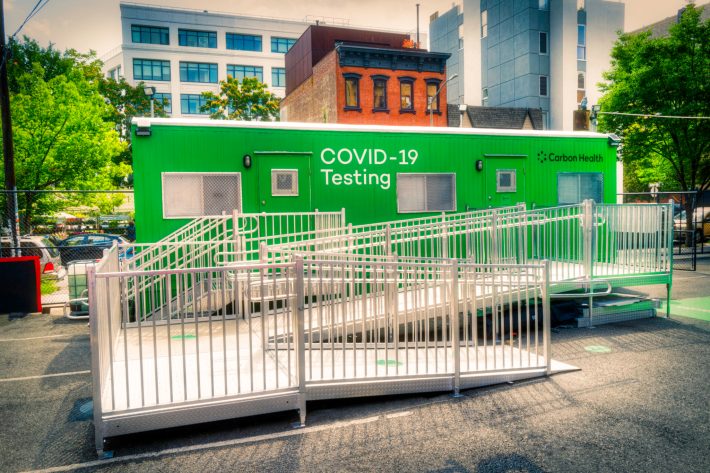
Of course, REEF is a private company, so its land-use altruism has its limits.
The company still operates car storage facilities and sells parking optimization technology throughout the U.S. — to bastardize Sigmund Freud, sometimes a parking lot is just a parking lot — and it doesn't always prioritize projects that have the same level of social impact as placing low-cost coronavirus care within arm's reach of every urbanite. Delivery-only "ghost kitchens," in particular, have been hotly debated in the restaurant industry during the pandemic for their heavy association with food delivery apps that slash profits to small business owners, and online-only "ghost retail" has always been controversial for siphoning business away from brick-and-mortars that contribute crucial third spaces to our communities.
REEF's solutions might lower the financial bar for would-be entrepreneurs who can't afford to rent a storefront on Main Street, but it's not quite the same as redeveloping a lot into a permanent structure that can serve people on foot and become a vibrant part of a neighborhood's streetlife.
Still, even REEF's ambitious efforts are unlikely to make a serious dent in our nation's stock of redevelopable land anytime soon — and in the meantime, repurposing parking lots to do anything besides store private cars is almost always an upgrade. The only question is what it's best to use all those lots for, and how cities can get in the game to transform their own parking "assets" into a tools for the greatest possible community benefit. Because as it stands right now, they don't.
